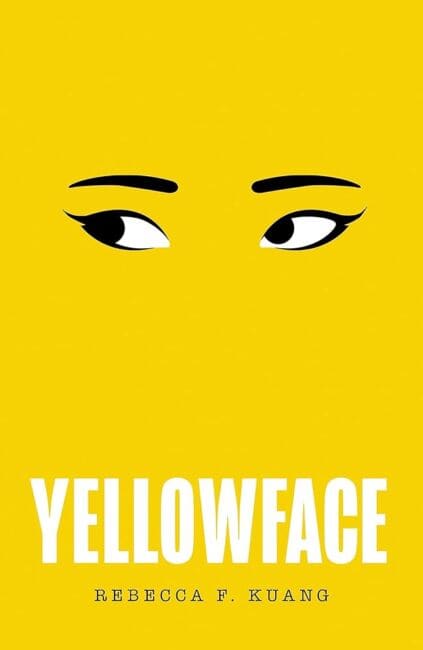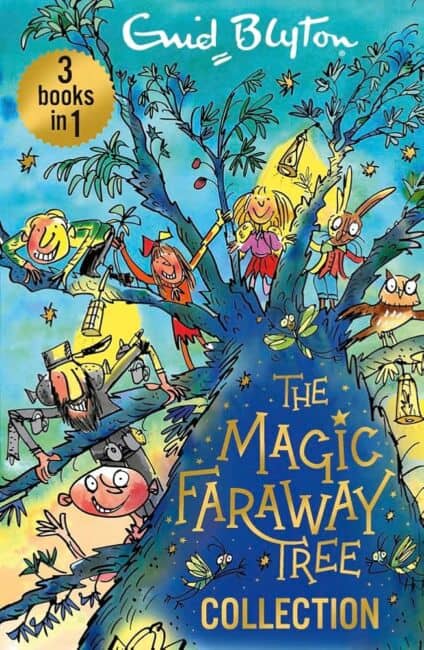Yellowface
R. F. Kuang
Yellowface was published by HarperCollins in May of 2023 and quickly found its way into numerous bestsellers and book of the year lists. By the end of the year, it had racked up an impressive rap sheet of award nominations and wins; it actually won four awards, including the Goodreads Choice Award, and was named Amazon’s Best Book of The Year 2023.
But critics are divided.
The novel marks R. F. Kuang’s fifth publication and is a dramatic departure from her previous work heavily steeped in fantasy and science-fiction themes. In some ways, however, this isn’t a story about “fantasy” in the swords-and-shields sense, but it certainly is a story about “fantasy” in the more pervasive, hypermodern sense of self-deceit.
The story follows June Hayward, a struggling American author who witnesses a more successful Chinese-American literary acquaintance, Athena Liu, die in a freak accident. Having let her own work fall by the wayside, June finds herself drawn into the ruse of having been intensely close with Athena and starts to rework Athena’s unfinished manuscripts to the point that, eventually, she decides to publish them herself.
Her publisher, however, suggests that she change her name to a more “Asian-sounding” name so she settles on her legal first and middle name: Juniper Song.
“The most granular critique of commercial publishing I’ve encountered in fiction, and seeing the cruel, indifferent vagaries of one’s industry so ably skewered is viciously satisfying.”
- Amal El-Mohtar, The New York Times
While some might find the story far-fetched or the racial blunders overworked, the novel still presents a fairly scathing critique of elements of the publishing industry, of attitudes towards “acceptable” racism, and of the everything-everywhere-all-at-once-ness of social media discourse (Twitter in particular). What’s more, it’s worth bearing in mind that these are aspects of the modern world to which Kuang has direct access – being herself Chinese-American.
And while Song or Sung is, of course, a reasonably common family name in mainland China, June’s settling on “Juniper Song” as her racially ambiguous alter ego is so on the nose that it feels intentionally heavy-handed on the part of Kuang. You’re not, for example, necessarily supposed to believe that this is a good choice or a believable literary twist but instead to laugh at the sheer level of cliché, quasi-racist imagery that June falls easily into in trying to evoke associations with “the far East” – something that June herself has no knowledge of. It’s perhaps comparable to somebody trying to evoke “Englishness” by changing their name to Pork Pie Smith or Acorn Johnson, and this humour is lost on some reviewers.
And so critical opinion is somewhat split, most reviewers agree that the book is well-written on a technical level but that the deeper elements of its themes aren’t satisfyingly executed or are, at times, too heavy-handed to ring true. And it’s this latter part that divides opinion.
“Most novels are lying when they say they can be read in a single sitting, but Yellowface reads quickly and much faster than anything she has ever written”
- Reema Saleh
While the narrator’s unreliability makes her “unbelievable” to some readers, to others it represents a distinct and accurate view of somebody scrambling to make it up as they go along. Reema Saleh, for example, points out that “watching [June] make her way through Yellowface is like watching a long and drawn-out train crash”. Out of the ones that do it well, the most far-fetched train crash narratives aren’t effective for how believable the mistakes are but how astoundingly out of hand they can get.
In other words, we’re not supposed to agree with June, we’re supposed to laugh at her. And, perhaps, this is the key issue: this novel is a thinking work from a highly educated author that is set in the form of a page-turner.
Page-turners are usually page-turners because they’re either incredibly good or incredibly simple, and it takes a rare author to tread that line so carefully. In other words, it’s almost an evolution of the modern need to be quickly entertained to be both entertained and made to think.
For that reason, we feel that this is a work well worth reading. Approach it from the perspective that the author is making fun with you rather than against you and you’re likely to enjoy it much more.
Who is R. F. Kuang?
Rebecca F. Kuang is an award-winning, Chinese-American author. Kuang was born on May 29th 1996 in Guangzhou before immigrating to the United States with her family when she was just 4 years old.
She has an impressive academic record, with an MPhil in Chinese Studies from Cambridge and an MSc in Contemporary Chinese Studies from Oxford. Kuang is now pursuing a PhD in East Asian Languages and Literatures at Yale too.
Other books by R. F. Kuang
Kuang initially gained widespread recognition with her debut novel, The Poppy War, a trilogy, which she wrote while she was completing her undergraduate degree. Since then, Kuang has also written the epic title, Babel, and is currently working on her sixth novel, Katabasis.
Keen to keep reading?
If you’re keen to add even more books to your TBR, browse the other books we’ve reviewed in genres like drama or wider fiction. In the meantime, visit our latest reviews page and, of course, the Victoria Freudenheim blog for more bookish inspiration.

| ISBN | 978-0008532819 |
|---|---|
| Pages | 334 |



